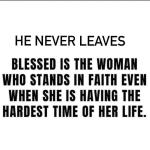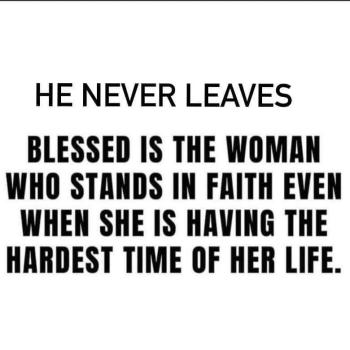In today’s rapidly changing world, the influence of religion on the younger generation is a topic of extreme importance. Many folks have experienced either growing up religious, where religion played a central role in their upbringing, or growing up in religion, where they were exposed to religious practices without necessarily embracing them fully.
This Listen Linda Speaks column aims to explore the impact of these two distinct experiences on the outcome and perspectives of the newer generation.
Let’s Understand the Context
To get right into this topic, it is crucial to first separate the difference between growing up religious and growing up in religion. Growing up religious refers to individuals who were born into a religious family and actively embraced and participated in religious practices, rituals, and beliefs. On the other hand, growing up in religion refers to those who were exposed to religious practices within their community or society, without necessarily holding deep personal religious convictions.
How Identities Are Formed
One of the key areas where the impact of growing up religious vs. growing up in religion becomes noticed and important is in the formation of personal identity. Growing up religious often involves a strong sense of belonging to a specific faith community, which can shape an individual’s cultural, social, and moral values. On the other han, growing up in religion may provide exposure to various religious traditions, allowing for a more diverse and inclusive understanding of spirituality and belief systems.
How the “World” Will View You and How You Will View the “World”
The experiences of growing up religious and growing up in religion can greatly influence an individual’s worldview. For those who grew up religious, their faith may serve as a lens through which they interpret and navigate the world. This can lead to a more fixed and dogmatic perspective, which may impact their openness to differing ideas and beliefs. While growing up in religion may foster a more pluralistic worldview, as exposure to different religious practices encourages tolerance and acceptance of diverse perspectives.
Emotional and Psychological Development
The impact of growing up religious vs. growing up in religion also extends to emotional and psychological development. Growing up religious can provide a strong support system and a sense of purpose, offering comfort and stability during challenging times. However, it may also impose strict expectations and limitations, potentially leading to feelings of guilt and fear. Growing up in religion, on the other hand, may allow for more personal exploration and freedom in forming one’s own beliefs, leading to a more flexible and adaptable mindset.
How Will The New Generation Navigate the Modern World?
As the newer generation faces the complexities of the modern world, the experiences of growing up religious vs. growing up in religion can significantly shape their ability to adapt and engage. Those who grew up religious may find it challenging to reconcile their deeply ingrained beliefs with the rapidly changing societal norms. In contrast, those who grew up in religion may have a more fluid perspective, enabling them to navigate the complexities of a diverse and evolving world.
What Does Linda Think? �
In examining the impact of growing up religious vs. growing up in religion, it becomes clear that these experiences have profound effects on the outcome and perspectives of the newer generation. While growing up religious can provide a strong sense of identity and belonging, it may also limit one’s worldview and adaptability. Growing up in religion, on the other hand, encourages a more inclusive and pluralistic mindset, allowing for personal exploration and growth. By understanding and appreciating these differences, we can foster a more empathetic and understanding society, where the future generation can thrive and contribute positively to the world. As for me and my family, we chose to raise our children in a non denominational way, we love GOD, we believe Jesus Christ died for our sins and rose again. We believe HE ascended into heaven and sits at the right hand of our Father GOD. But we do refuse to raise our children to believe what we want them to believe. We teach them what we know, but we also allow them the freedom to look into other religious beliefs and make the choices they want to make. Giving them the freedom as individuals, not only helps them to find themselves but also teaches them how to be independent thinkers and not just be conformed to one religion. It also teaches them that in life, they have their own path and what they believe matters. That was a choice as children, my husband and I didn’t have. So to see our children be able to speak and think for themselves in that way is refreshing.

















